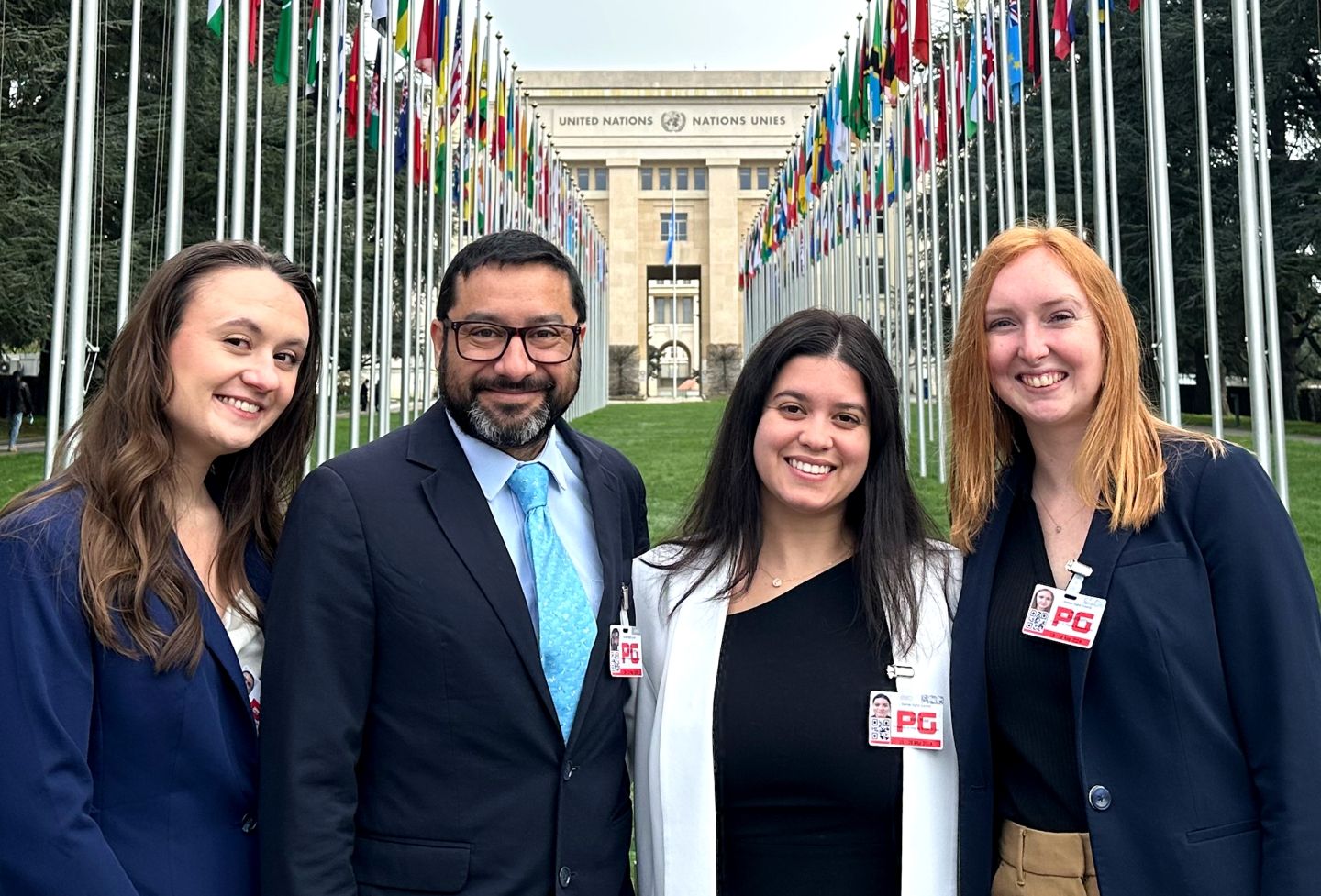After spending 13 years establishing the innocence of many Virginians — including some whose cases were handled by a notorious local detective involved in the wrongful convictions of “The Norfolk 4” — University of Virginia School of Law professor Deirdre Enright ’92 and her new clinic have now partnered with Norfolk’s chief prosecutor to investigate whether any other defendants were swept into prison by the misdeeds of the same disgraced local detective, Robert Glenn Ford.
Ramin Fatehi, who was elected Norfolk’s commonwealth attorney in November 2021, announced the school’s independent third-party investigation Oct. 27 and stopped by the Law School a few days later to meet with students from UVA Law’s Project for Informed Reform, a clinic that launched in 2021 to produce reliable data in support of criminal justice reform.
While there, Fatehi lauded Enright’s record as a national leader in conviction integrity work.
“Professor Enright has created a national model center here for how to make sure that our system is holding the right people accountable,” Fatehi said. “And I can’t think of a better partner.”
The investigation may be the first of its kind, at least in the Hampton Roads area, Fatehi said. But outsourcing to the clinic provides additional resources to help his office establish the credibility and transparency it needs to engender trust with the area’s residents.
“If you talk to people of a certain age in the neighborhoods where violence has been persistent for decades, they know Glenn Ford,” Fatehi said. “Those are the very same people who have a higher probability of being witness to or victim of a violent crime. Is it reasonable to expect that people would pick up the phone, call the police and inform on their neighbors or family members, when they know there was a history of irregularities with this particular detective?”
Ford worked as a homicide and drug detective for the Norfolk Police Department in the 1980s and 1990s until he gained national notoriety when he was arrested by the FBI for extortion, conspiracy and making false statements — including taking tens of thousands of dollars from drug dealers in exchange for arranging favorable treatment for them at sentencing. In 2011, he was sentenced to 12 years in prison for those crimes but was released after 10.
“It has got to be one of the worst cases in the history of the commonwealth,” Fatehi told the students. “But the coercing of confessions and threats of violence during those [interrogations] were peeled away and were not touched by federal prosecutors, and no one has systematically looked for those types of problems.”
Until now. The investigators have so far identified at least 90 cases involving Ford and another 90 that may have involved him, according to Fatehi’s office. Uncovering evidence of misconduct, or finding exculpatory evidence that was withheld from the defense, could lead to further charges for Ford and to pathways to appeals for the defendants convicted in his cases. For Enright’s clinic’s larger project — providing data points to guide criminal justice reform — the Ford investigation may unearth rich information about misaligned incentives and red flags.
“[The defendants in] the first 10 cases we’ve looked at are all still incarcerated, but they’ve all been fighting their appeals saying, ‘I didn't do this’ for decades,” Enright said. “I’m sure we can’t prove every single one of them are innocent, but every single one of them has things in their file that [are problematic]. One person got a hung jury three times, and they just kept going [after him].”
Of the 15 people the Innocence Project at UVA Law has freed, 67% involved police misconduct and 53% involved false allegations, according to that clinic’s data.
Fatehi acknowledges that the outcome of the Ford investigation is hard to predict.
“A lot of his wrongdoing may never completely come to light, but we at least have an obligation to look at our prosecution files and see if there’s anything there,” Fatehi said. “We don’t know where it would lead, but it’s not just the destination, it’s the journey.”
Founded in 1819, the University of Virginia School of Law is the second-oldest continuously operating law school in the nation. Consistently ranked among the top law schools, Virginia is a world-renowned training ground for distinguished lawyers and public servants, instilling in them a commitment to leadership, integrity and community service.


